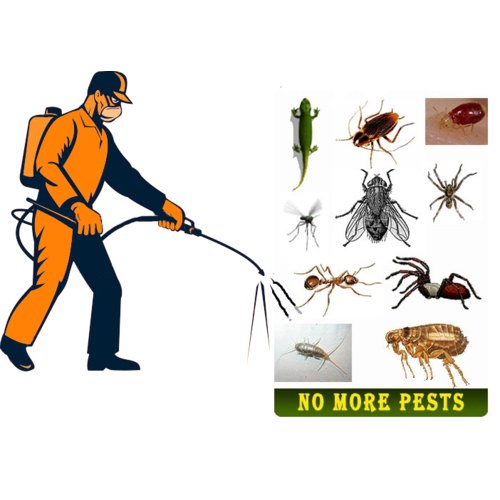Top Coquitlam Pest Control Solutions for a Rodent-Free Home
Top Coquitlam Pest Control Solutions for a Rodent-Free Home
Blog Article
Safe and Reliable Parasite Control for Lasting Security
Efficient insect management calls for a complex strategy that stabilizes ecological honesty with the need for efficient pest reductions. The subtleties of these methods may not be promptly clear, prompting a more detailed assessment of the practices that can lead to sustainable parasite control results.
Comprehending Bug Control Techniques
Pest control encompasses a range of techniques targeted at managing and getting rid of undesirable bugs and rats that can threaten both health and property. Understanding these techniques is critical for efficient pest monitoring.
The primary categories of insect control techniques consist of mechanical, organic, and chemical strategies. Mechanical techniques involve physical obstacles and catches to stop bug entrance and capture unwanted varieties. Utilizing displays on windows or using sticky traps can dramatically decrease insect populations without presenting damaging substances - exterminator coquitlam.

Chemical parasite control is typically the most identified technique, utilizing chemicals to eliminate insects. These chemicals can be efficient but must be used with care to prevent adverse results on non-target varieties and the atmosphere.
Benefits of Eco-Friendly Solutions
Just how can green solutions change parasite control methods? The fostering of eco-friendly pest control methods uses many advantages, dramatically enhancing the performance and safety of pest monitoring (exterminator coquitlam). These solutions utilize natural active ingredients, lowering the dependence on dangerous chemicals that can position dangers to human wellness and the setting. This change not only secures family members and animals however also decreases the possibility for soil and water contamination.

One more advantage is the favorable impact on local biodiversity. Environment-friendly options are created to target specific insects while protecting helpful pests and wildlife, promoting a balanced ecological community. This approach lines up with the growing customer need for sustainable methods, enhancing the credibility of insect control suppliers.
Integrated Parasite Monitoring Approaches
The implementation of environmentally friendly options normally results in the fostering of Integrated Bug Management (IPM) techniques, which additionally boost parasite control effectiveness. IPM is an all natural approach that incorporates numerous techniques to take care of parasite populaces while reducing environmental impact. This strategy highlights using organic, cultural, mechanical, and chemical controls, ensuring a lasting and well balanced method of bug monitoring.
One basic element of IPM is the thorough assessment of parasite activity and ecological conditions. By monitoring bug populations and identifying their life cycles, practitioners can implement targeted treatments that interfere with the insect's environment or lifecycle, lowering dependence on chemical pesticides. Furthermore, social techniques such as plant rotation and habitat adjustment can dramatically reduce pest facility and reproduction.
Another important element is making use of biological control representatives, such as beneficial bugs or microbes, which can naturally subdue pest populaces. When chemical applications are required, IPM focuses on the use of low-risk pesticides and uses them uniquely, lessening direct exposure to non-target organisms and humans.
Integrating IPM techniques not just enhances insect control effectiveness however likewise advertises a more secure ecological community, aligning with the growing need for lasting methods in insect administration.
Safe Practices for Homeowners
Comprehending the importance of safe techniques in insect control can wasp killer encourage homeowners to effectively manage parasite concerns while safeguarding their health and the setting. Applying preventative measures and non-toxic methods is critical in minimizing exposure to dangerous chemicals.
House owners should initially analyze their setting for problems that attract insects, such as standing mess, food, and water waste. Consistently cleaning and securing access factors can prevent bugs from attacking the home. Utilizing all-natural deterrents, such as vital oils or diatomaceous earth, can supply reliable options to chemical pesticides.
When chemical therapies are needed, homeowners must go with products that are especially labeled as safe for residential usage. It is necessary to follow application guidelines carefully to prevent overexposure. Additionally, making page use of targeted treatments in locations where bugs are recognized, instead of covering splashing, can dramatically decrease chemical use.
Finally, preserving open interaction with parasite control professionals is crucial. Property owners should ask about the security of products used and request environment-friendly options whenever feasible. By taking on these safe techniques, property owners can produce a healthier living atmosphere while successfully handling insect concerns.

Tips for Long-Term Security
Establishing an insect administration approach that stresses lasting defense can significantly boost the performance of the risk-free methods formerly gone over. To achieve this, property owners ought to execute regular assessments of their property, focusing on hidden locations such as attics, cellars, and crawl rooms. Early discovery of insect task is critical in preventing problems from taking hold.
Furthermore, maintaining a tidy setting is essential. This includes correct food storage, without delay cleaning spills, and routinely dealing with rubbish. These methods minimize attractants that attract parasites into the home. Securing entrance factors, such as cracks around windows and doors, can efficiently obstruct potential parasite gain access to.
Landscape design must likewise be thought about; keeping plants cut and maintaining a distance between greenery and the home decreases hiding areas for bugs. Utilizing all-natural deterrents, such as vital oils or diatomaceous earth, can even more discourage problems without turning to rough chemicals.
Finally, collaborating with a professional parasite control solution for periodic analyses can provide an added layer of security. These experts can provide customized referrals and advanced therapies, guaranteeing that your home stays safeguarded versus pests in the long-term.
Verdict
To conclude, trustworthy and secure pest control calls for a complex approach that emphasizes environmentally friendly approaches and incorporated parasite monitoring. By applying all-natural deterrents, performing regular inspections, and maintaining correct cleanliness, residential property proprietors can significantly lower insect populaces while shielding helpful pests and the environment. Collaboration with expert bug control solutions boosts the effectiveness of these methods, ensuring customized options that supply long lasting defense and assurance versus future problems.
Efficient pest management needs a multifaceted strategy go right here that stabilizes eco-friendly stability with the need for efficient parasite suppression. The adoption of environment-friendly parasite control methods supplies countless benefits, dramatically boosting the performance and security of insect management.The execution of environment-friendly solutions naturally leads to the adoption of Integrated Bug Monitoring (IPM) strategies, which further boost bug control effectiveness. exterminator coquitlam. By monitoring bug populations and determining their life cycles, professionals can carry out targeted interventions that disrupt the parasite's habitat or lifecycle, decreasing reliance on chemical pesticides.In conclusion, reliable and secure parasite control requires a complex technique that highlights green methods and integrated pest administration
Report this page